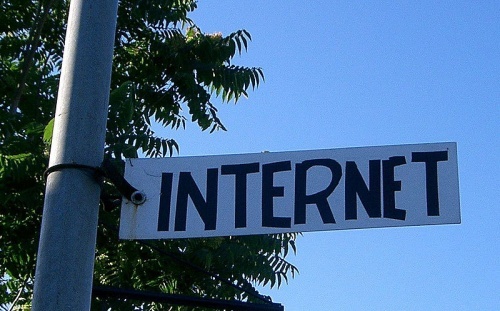
Big Brother or More Freedom? -The Internet’s role as a catalyst for change in light of the turmoil sweeping North Africa and the Middle East, the exposure by WikiLeaks of confidential United States diplomatic cables and recent cyber-attacks are high on the agenda of a United Nations-backed meeting that began 9-28-2011. Over 2,000 delegates from more than 100 countries, representing governments, the private sector, civil society, the Internet community, international organizations and the media, have converged on Nairobi, to examine cross-border challenges at the sixth meeting of the Internet Governance Forum (IGF), set up to support Secretary-General Ban Ki-moon in carrying out the mandate of the 2005 World Summit on the Information Society in Tunis. (From UN News Centre Sources)
Freedom v. Cyber Attacks?
“I hope the debate here will continue to refine our understanding of the appropriate local and international institutional arrangements,” Under-Secretary-General for Economic and Social Affairs Sha Zukang told the opening session of the four-day meeting. “Discussion on security, openness and privacy can be addressed in light of the increasing number of young users. At the same time, international cyber attacks are a growing concern,” he said in a message delivered by Thomas Stelzer, Assistant-Secretary-General for Policy Coordination and Inter-Agency Affairs.
Internet as Catalyst:
The main theme of this year’s meeting is “The Internet as a catalyst for change: access, development, freedoms and innovation,” with increased access leading to new development opportunities, freedoms and innovations, and debate focusing on refining understanding of the appropriate local and international institutional arrangements.
Discussion on security, openness and privacy will highlight the increasing number of young Internet users, in addition to internet security, cyber-crime and cloud governance in an attempt to make the Internet sustainable and a tool for positive change.
Statistics Prove Still Expanding Significance:
In some countries, more than 80 per cent of households now have Internet access, almost all of them through a broadband connection and many of them through mobile networks. The developing world increased its share of mobile subscriptions from 53 per cent in 2005 to 73 per cent in 2010, and access to mobile networks is now available to 90 per cent of the world’s population and 80 per cent of the rural population. It is estimated that the number of people with Internet access at home increased from 1.4 billion in 2009 to almost 1.6 billion last year.
ARTICLE –“Wikileaks: Biggest Fear-Will Fear Prevail?”-
diplomaticallyincorrect.org/films/blog_post/wikileaks-biggest-fear-will-fear-prevail-un-human-rights-commissionerconcerns-by-ambassador-mo/17129
ARTICLE: “Kazakhstan Call for Cybersecurity Treaty to Address Hacking” -
diplomaticallyincorrect.org/films/blog_post/kazakhstan-call-for-cybersecurity-treaty-to-address-hacking-by-ambassador-mo/35315
By Ambassador Muhamed Sacirbey
Facebook - Become a Fan at “Diplomatically Incorrect”
Twitter – Follow us at Diplomatically

